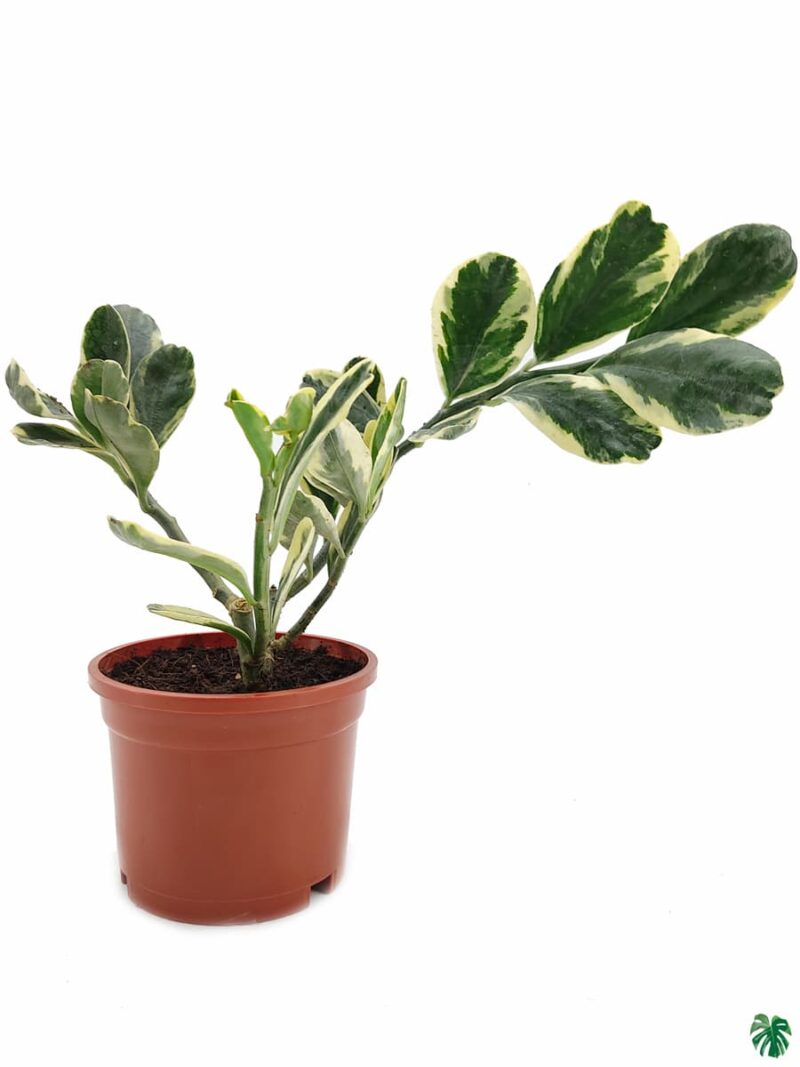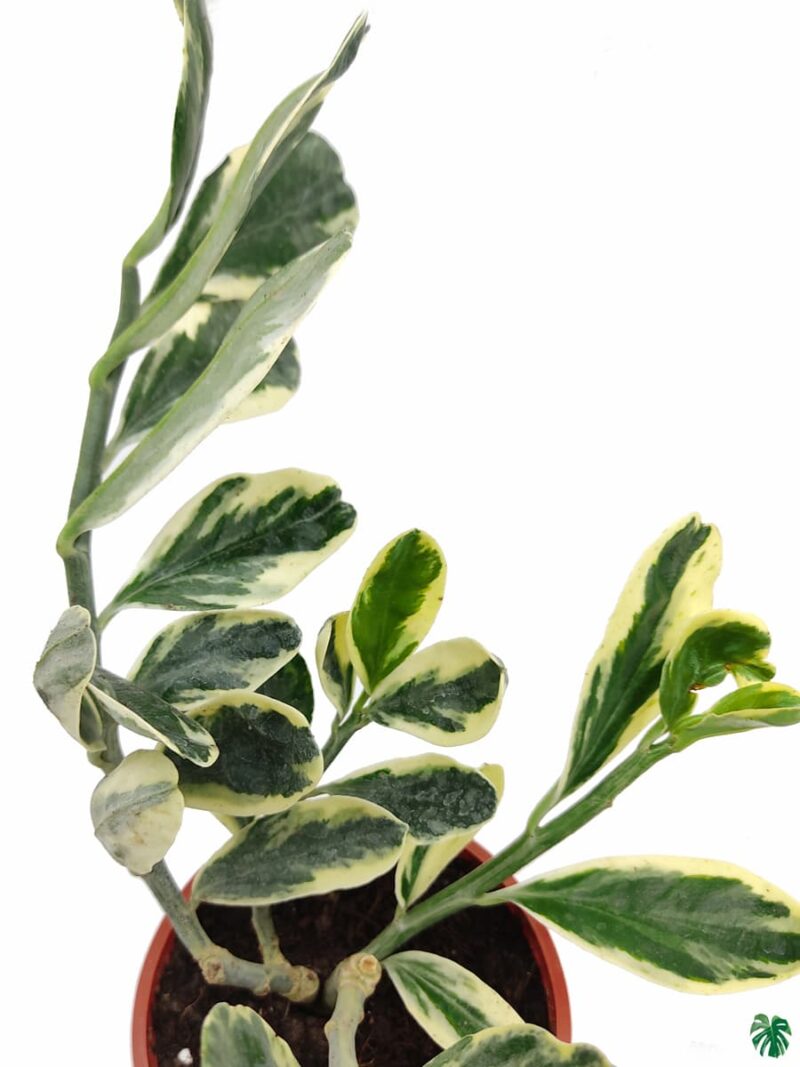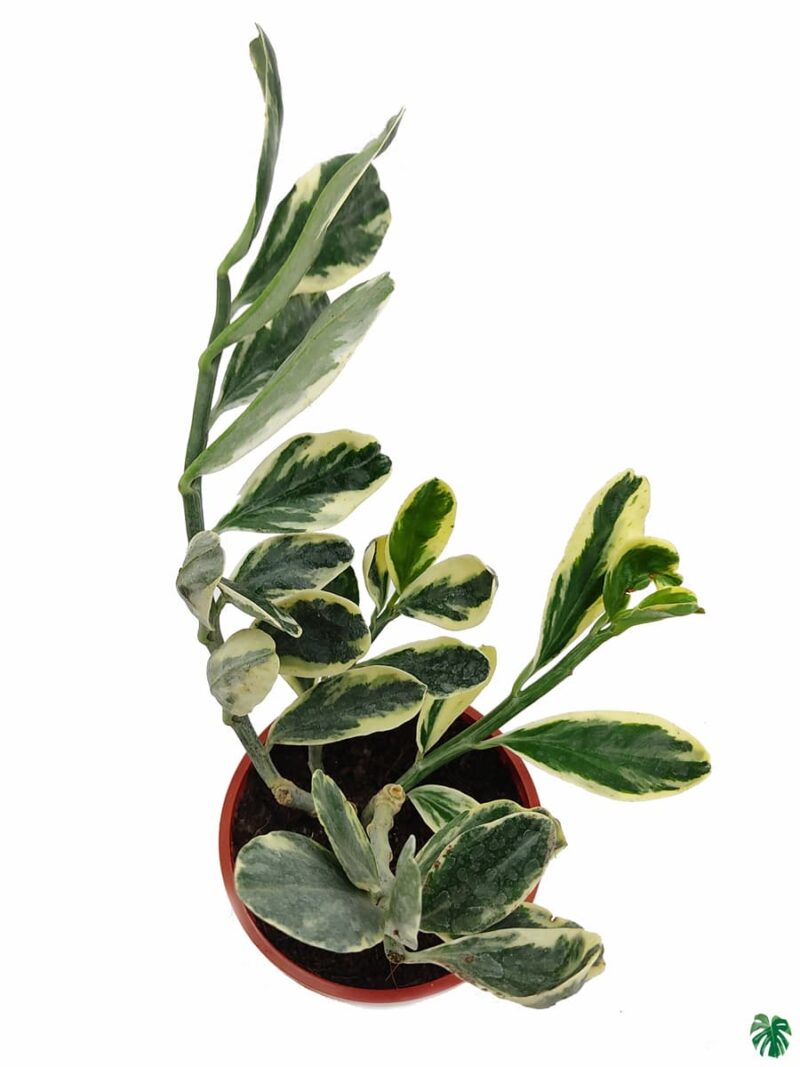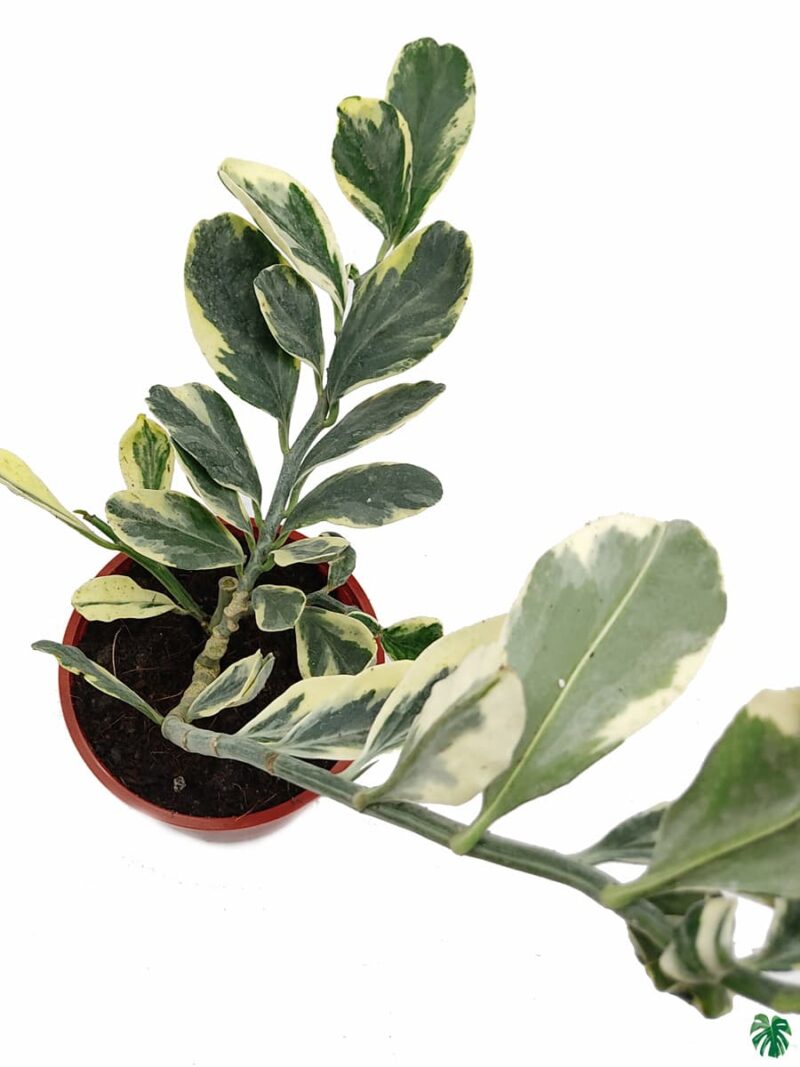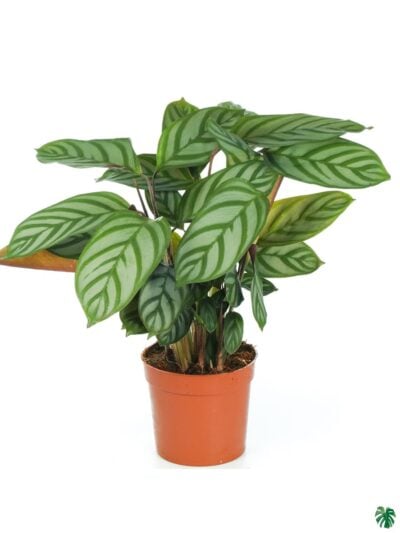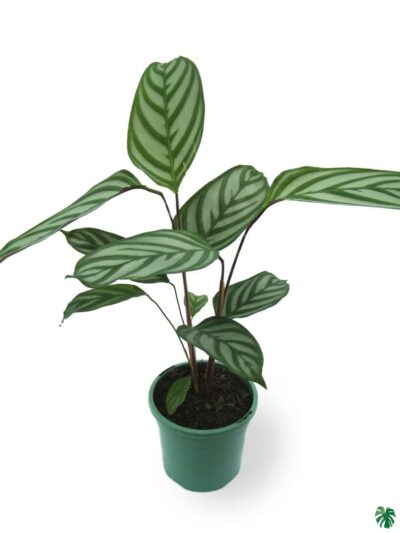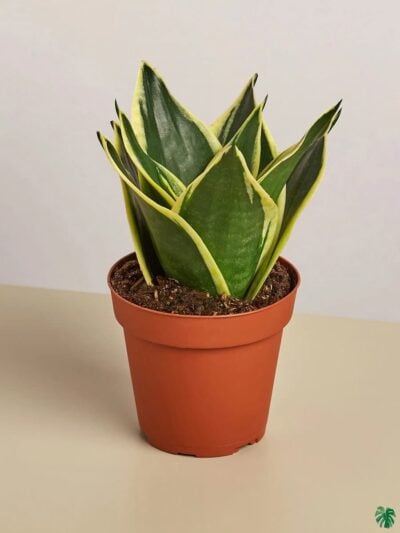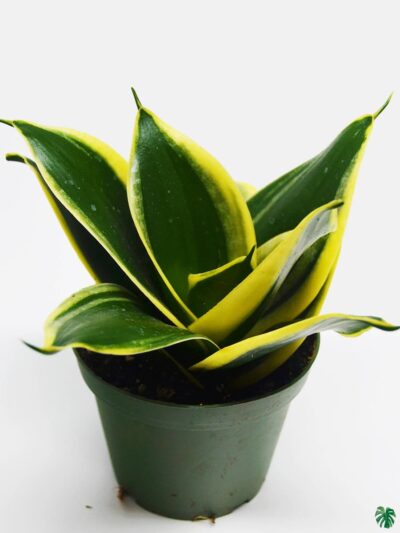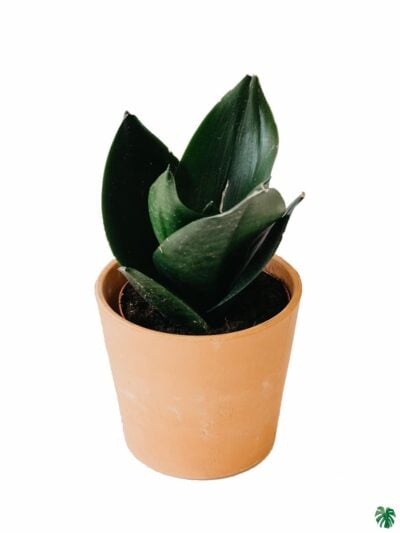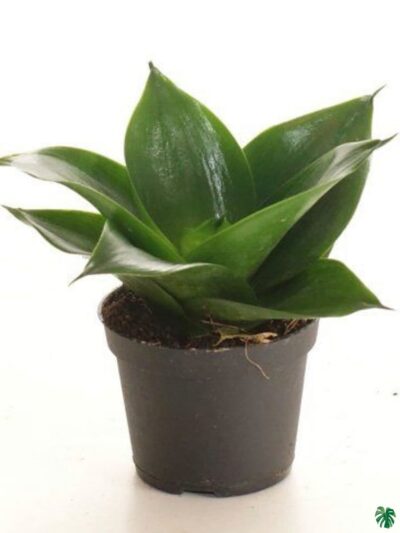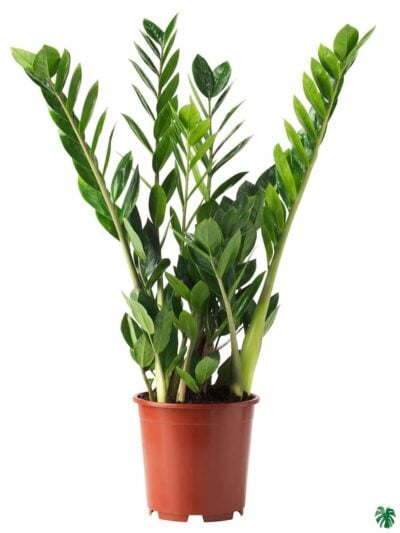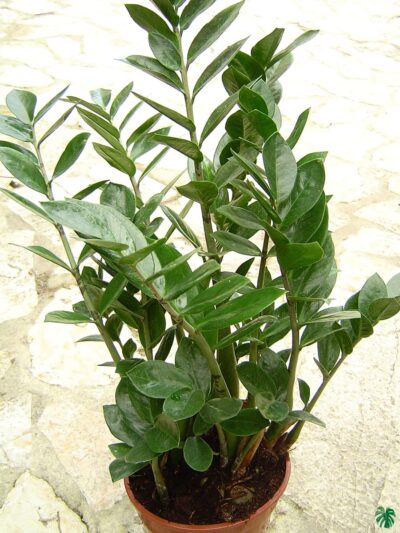Pedilanthus 'Jurassic Park'
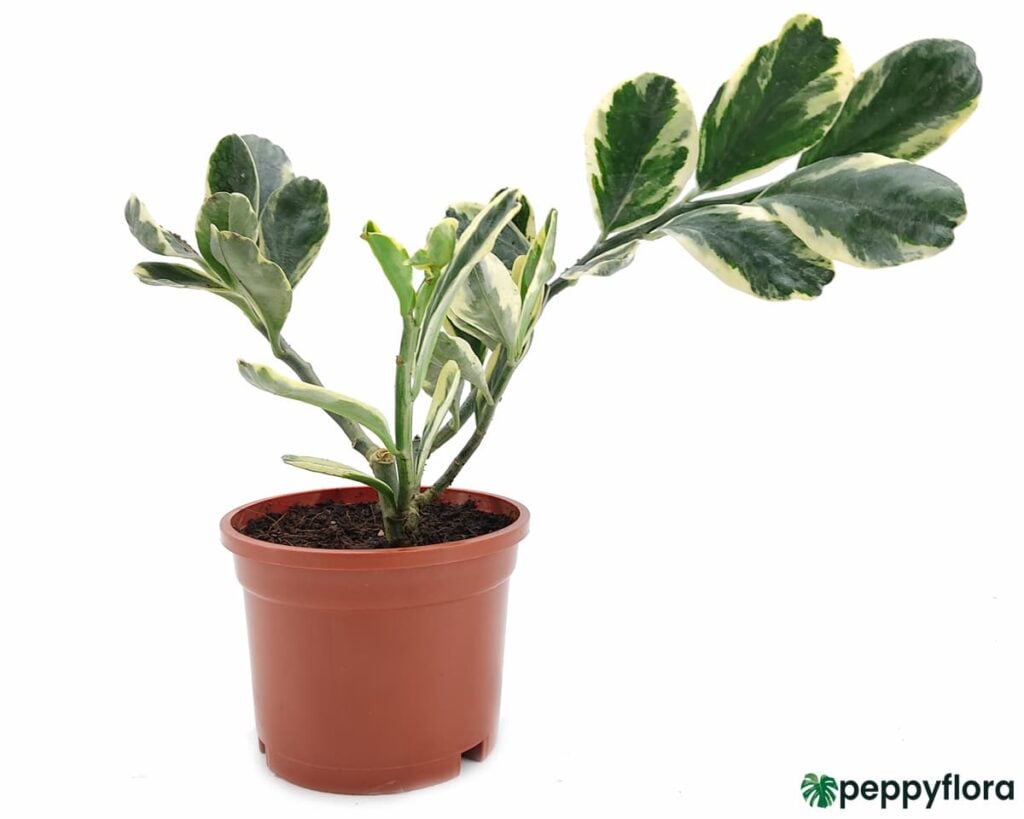
Ideal for windowsills Pedilanthus ‘Jurassic Park’ is a succulent of most unusual form. This evergreen shrub has zigzagging fleshy stems with thick waxy powdery grey-green, zigzag and symmetrical leaves and exude milky sap when cut or bruised. It is an excellent plant for the urban gardener where ease of maintenance and lack of space is of prime importance. Usually growing to height of 4 – 6 feet, it only requires half a day’s sun and is drought tolerant. These are very healthy plants with well established root systems.
Euphorbia Tithymaloides is a perennial succulent spurge. An erect shrub, the plant is also known by the scientific name Pedilanthus Tithymaloides. However, the genus Pedilanthus has been submerged into the genus Euphorbia, and is more correctly known by its new name.
The growth rate of Euphorbia Tithymaloides will vary greatly depending on soil type, sunlight, temperature and other factors.

